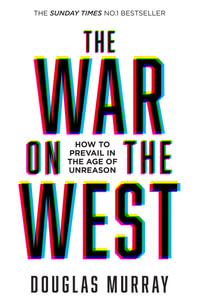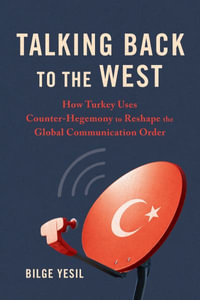This book provides a novel approach to the study of security and global governance by demonstrating that psychological interventions are integral to global governmentality. It brings together three divergent case studies in order to illustrate how therapeutic interventions are deployed in a range of global governance projects, and, as such, how the psy disciplines (psychiatry, psychology, and their sub-disciplines) are called upon in the pursuit of global security and order. This book argues that global order is pursued quite literally through attempts to quash purported psychological disorders, in disparate sites. In each case study, the author traces a a diagnostic competitiona (TM) over the psychological state of a targeted population, in order to assess the effects of the problematization of the psyches of these populations. The empirical case studies of therapeutic interventions are as follows:
- GuantAnamo Bay, where both the US military and human rights organizations deployed psychiatric diagnoses of the detainees in order to represent their reported suicide attempts as evidence that the detainees were either madmen or victims
- Post-conflict populations, where two models for the delivery of psychological aid have been forged: the psychosocial and the mental health models
- The Canadian military, where so-called Operational Stress Injuries amongst soldiers have been treated with the aim of returning soldiers to duty in the service of global order and security
By bringing these case studies together, this study provides a novel approach to the study of security and global governance. It demonstrates that the global governance of minds is not a coordinated effort, but proceeds on a variety of fronts. Additionally, the cases show how therapeutic interventions are sometimes coercive, but at other times benevolent, depending on whether the subject population is considered a threat (Guantanamo detainees), victim (post-conflict populations), or provider (Canadian soldiers) of security and order. The case studies thus run from the most coercive/sovereign to the most benevolent/governmental.
Industry Reviews
Whereas conventional international relations might consider the knowledge and the management of the psyche to belong to the domain of the psy sciences, and therefore to lie outside the scholarly world of international relations theory, Howell insists that psy sciences be treated as political sciences. This move makes Madness in International Relations an important and imaginative contribution to the genealogy of international rule and its contestation. William Walters, Carleton University. a Howell takes us into the heart of the dark absurdities of the use of psychological discourses in the war on terror. With an astute comparison of three actors in that war -- Gitmo detainees, post-conflict survivors, and the Canadian military -- she shows how the struggle for security and order happens through psychological/psychiatric disciplines and discourses. She not only describes these three cases in all their richness, but attends to what is lost and gained in these struggles to define psychiatric disorder, including military budget dollars, the denial of agency, and the threat of the collapse of politics altogether into the field of governance. A sharp and compelling introduction to the relationship between madness and the psychiatric science of war. Catherine Lutz, Brown University. a Over the past 15 years, psycho-trauma has become a catchword for NGO's, the military and the media. Nowadays, battalions of psy workers roam the scenes of natural and man-made disasters. This important book provides a brilliant and timely analysis of how psy discourses and practices are implicated in broader security agendas. Essential reading for all those interested in the ethics of medical practices or the politics of global security. Rony Brauman, former president of Medecins Sans Frontieres (MSF). Alison Howell provocatively places madness at the centre of international relations and challenges us to rethink international security, order and politics through historicising their limits. Passionately argued, this book explores the insidious operations of the 'psy disciplines' in liberal regimes and risk management. Inspired by Foucault's genealogical analyses, Howell's shift towards an ethico-politics of effects in security studies should be read by all those with an interest in critical IR. Claudia Aradau, Open University.
























